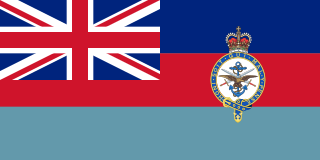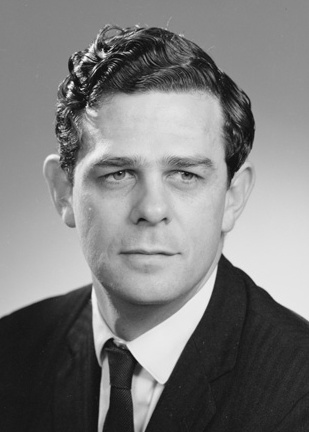Related Research Articles

The Second Sea Lord and Deputy Chief of Naval Staff is deputy to the First Sea Lord and the second highest-ranking officer currently to serve in the Royal Navy and is responsible for personnel and naval shore establishments. Originally titled Second Naval Lord in 1830, the post was restyled Second Sea Lord in 1904. They are based at Navy Command, Headquarters.

The Chief of the Defence Staff (CDS) is the professional head of the British Armed Forces and the most senior uniformed military adviser to the Secretary of State for Defence and the Prime Minister of the United Kingdom. The chief of the defence staff is based at the Ministry of Defence and works alongside the Permanent Under-Secretary of State for Defence, the ministry's senior civil servant. The Chief of Defence is the highest ranking officer to currently serve in the armed forces.

Vice Admiral Sir Timothy James Hamilton Laurence is a retired Royal Navy officer and husband of Anne, Princess Royal, the only sister of King Charles III. Laurence was equerry to Queen Elizabeth II from 1986 to 1989. He married her daughter, Princess Anne, in 1992.
The Deputy Chief of the Defence Staff is a senior British military officer who reports to the Chief of the Defence Staff and Vice-Chief of the Defence Staff.

The Defence Services Secretary is a senior member of the Royal Household of the Sovereign of the United Kingdom.
The Commandant of the Royal College of Defence Studies, formerly the Commandant of the Imperial Defence College, is the head of the Royal College of Defence Studies, a British military staff college which instructs senior officers, diplomats, and civil servants.

Sir Ransley Victor Garland KBE, usually known as Vic Garland, was an Australian politician and diplomat. He was a member of the House of Representatives from 1969 to 1981, representing the Liberal Party, and served as a minister in the McMahon and Fraser governments. He later served as High Commissioner to the United Kingdom from 1981 to 1983.
Rear Admiral John Richard Hill was a rear-admiral in the Royal Navy, a former chief executive of the Middle Temple, author, and editor of many books on naval affairs.
Vice Admiral Sir Robert Walmsley, was a senior officer of the Royal Navy who served as Chief of Defence Procurement at the UK Ministry of Defence from 1996 to 2003.

The Royal Navy Medical Service (RNMS), also termed the Royal Naval Medical Service and branded as Navy Healthcare, is the branch of the Royal Navy responsible for providing 'comprehensive healthcare to ships, submarines and Royal Marine personnel at sea and on land'. It includes within its remit of responsibility Queen Alexandra's Royal Naval Nursing Service.

The Hydrographer of the Navy is the principal hydrographical Royal Naval appointment. From 1795 until 2001, the post was responsible for the production of charts for the Royal Navy, and around this post grew the United Kingdom Hydrographic Office (UKHO).

Vice-Admiral Sir Edwin John Horlick was a British Royal Navy officer who served as Director-General of British Ships from 1979 to 1983, and as Chief Naval Engineer Officer from 1981 to 1983.
The Royal Households of the United Kingdom consist of royal officials and the supporting staff of the British royal family, as well as the Royal Household which supports the Sovereign. Each member of the Royal Family who undertakes public duties has their own separate household.
Naval Home Command administered training and garrison functions for the Royal Navy from 1969 to 2012. Its commander was Commander-in-Chief, Naval Home Command (CINCNAVHOME).

The Naval Recruitment Training Agency (NRTA) originally called the Naval Training Department was first established in 1944 as a department within the Admiralty it underwent numerous name changes until 1 April 1995 as a new agency of the Navy Department of the British Ministry of Defence. Its role was to contribute to the operational capability of the United Kingdom Armed Forces by recruiting to the Naval Service, delivering training to the Defence community it was administered by the Chief Executive (NRTA)/Flag Officer, Training and Recruitment it was abolished in 2005.
This is a list of Permanent Under-Secretaries for Scotland in the Civil Service. It should not be confused with the Parliamentary Under-Secretary of State for Scotland.
Sir Edward Clifford Cornford, KCB was a British civil servant and government scientist. Educated at Jesus College, Cambridge, he entered the Royal Aircraft Establishment in 1938 as a junior scientific officer. He was part of the Air Warfare Analysis Section from the outset of its existence and throughout the Second World War. He rejoined RAE in 1945 and worked on guided weaponry; he served as head of the assessments division from 1951 to 1956, and then head of the guided weapons department. He was chairman of the Defence Research Policy Staff (1961–65), before serving as Chief Scientist (Army) from 1965 to 1968, then Deputy Chief Adviser from 1968 to 1969. He was Controller, Guided Weapons and Electronics at the Ministry of Technology from 1969 to 1972, and then Controller (Policy) at the Ministry of Defence's Procurement Executive from 1972 to 1975. Cornford was then Chief Executive of the Procurement Executive from 1975. He retired in 1980. In retirement, he was a director of the Post Office from 1981 to 1987 and chairman of Raytheon Europe from 1982 to 1991.
Sir George Leitch, KCB, OBE was an English civil servant. Educated at King's College, Newcastle, he taught mathematics for two years before serving in the Army during the Second World War, working in operational research and ending his service with the rank of Brigadier as a deputy scientific adviser in the War Office. Demobilised in 1946, he entered the Ministry of Supply the next year. He then worked in the War Office and the Ministry of Defence, where he was promoted to deputy secretary in 1965. Moving to the Ministry's Procurement Executive in 1971, he served as its Second Permanent Secretary from 1972 to 1974 and then Permanent Secretary and Chief Executive from 1974 to 1975. After retiring, he was chairman of board of the aerospace manufacturer Short Brothers from 1976 to 1983.
References
- 1 2 Hunting Defence Bargains Flight Global, 31 May 1973
- ↑ Procurement Executive Posts Flight Global, 11 April 1974
- ↑ Whats on Flight Global, 24 January 1981
- ↑ Top apprentices honoured at annual awards Archived August 6, 2009, at the Wayback Machine DESider, January 2009
- ↑ Birthdays The Times, 14 March 2007
- ↑ Debrett's People of Today 1994
- ↑ "No. 51578". The London Gazette (Supplement). 31 December 1988. p. 7.
- ↑ Malcolm McIntosh Lecture Archived November 28, 2009, at the Wayback Machine
- ↑ Robert Walmsley appointed Chief of Defence Procurement
- ↑ Chief of Defence Procurement at the Ministry of Defence